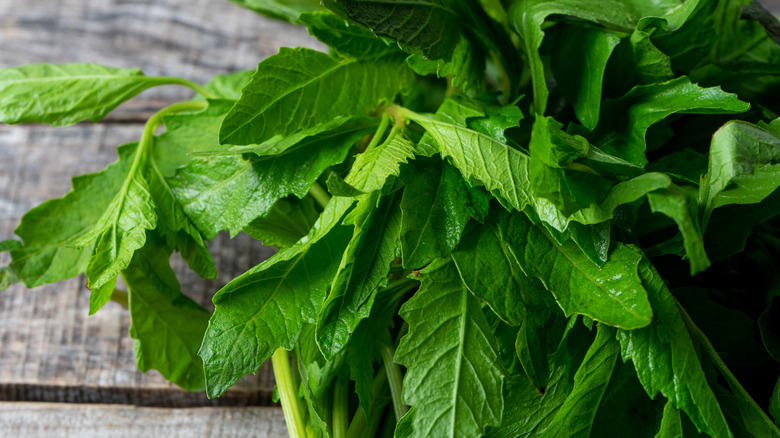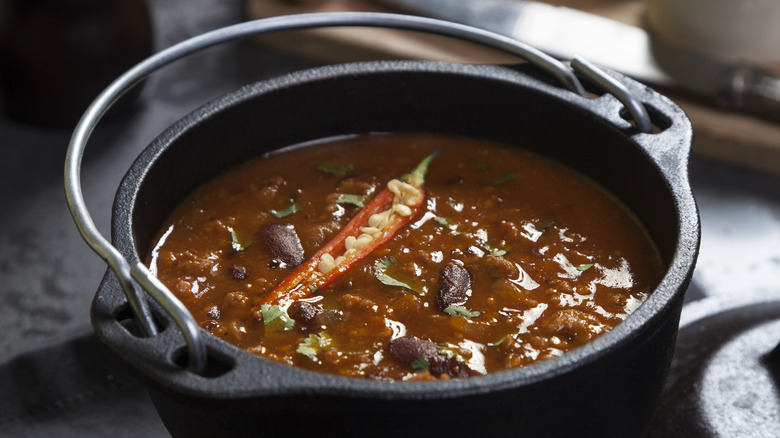The Incredible Benefits Of Eating Epazote
Unless you've traveled to Mexico or Central America and tried the some of the local cuisine, you might not be familiar with epazote. Culinary Lore notes that the plant's natural range extends from Central America into the southwestern U.S., and the herb has been introduced as far north as Canada. Still, epazote is not a household name. It has a pungent scent reminiscent of kerosene or gasoline. As for its flavor, The Spruce Eats describes it as an acquired taste. Epazote is so strongly bitter it can overpower the taste of other spices. The flavor, which can even be called medicinal, is mellower in the dried form or after cooking. The Kitchn says that in addition to a turpentine-like flavor, epazote has notes of mint, citrus, pine, oregano, and anise.
It's best to ignore the direct translation of epazote from the Aztec Nahuatl language — "skunk sweat" — and focus on the plant's impressive benefits, perhaps while holding your nose. The Aztecs used epazote as a medicine to treat hookworm. The Spruce Eats recommends drinking a tea made with the leaves and flowers, which can be suitable for intestinal parasites and cramps.
Epazote aids digestion and brings other health benefits
The Kitchn notes that epazote is a carminative, meaning it relieves the gas and bloating that can accompany beans and certain vegetables. It is often added to a pot of beans as a seasoning for this reason. Besides digestion, Organic Facts indicates that epazote may improve respiratory conditions and metabolism, and promote weight loss because it is high in fiber and low in calories.
Nutritionally, the herb contains vitamins A and C, folic acid, copper, manganese, calcium, iron, magnesium, potassium, and zinc, per Organic Facts. The minerals support bone health, and the potassium may help relieve high blood pressure.
Culinary Lore warns that ascaridole, the same chemical that is toxic to intestinal worms, can be toxic to humans, too, in high doses. Taking concentrated epazote in an essential oil has led to overdose deaths, according to The Spruce Eats, which recommends those who are pregnant not ingest epazote in large amounts. Thankfully, it would be highly unlikely to consume enough fresh leaves to have poisonous effects, and you can safely add it to your next Mexican-inspired recipe.
Epazote is most readily available in the U.S. in dried form, according to Culinary Lore, either in Latin specialty markets or online.

